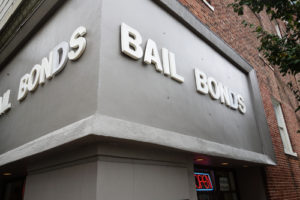Bail/Bond
 If you have been arrested, a judge may allow you to pay a certain amount of money in exchange for your release from custody. This is known as bail, and it’s an important legal concept that you should understand.
If you have been arrested, a judge may allow you to pay a certain amount of money in exchange for your release from custody. This is known as bail, and it’s an important legal concept that you should understand.
The purpose of bail is to prevent the incarceration of those who have not yet been proven guilty in a court of law. Paying the set bail amount is the defendant’s way of telling the court that he will return for all court proceedings if the court agrees to release him from custody.
Determining the Amount of Bail
A judge determines the amount of bail to set for each defendant who is charged with a crime. To determine how much bail should be required, the judge will consider various factors, including the crimes that have been committed, the defendant’s prior criminal record, and the defendant’s ties to the community.
In some cases, the judge may deny bail. This is typically only done if the judge believes the defendant is a flight risk, meaning he may leave the area and skip out on future court proceedings, or if the judge believes the defendant is a threat to the community. A defendant may be viewed as a flight risk if he has no ties to the community, meaning he does not have local family members and is not employed in the area.
How to Pay Bail After an Arrest
Defendants can pay the total bail amount in cash. However, many people cannot afford to pay the amount of bail that has been set by the judge. Instead of staying behind bars until their court date, these defendants can hire a bail agent and use a bail bond.
Typically, a friend or relative of the defendant will get in touch with a bail agent, also known as a bondsman. The bail agent promises the court that he will pay the full amount of the bail if the defendant fails to appear for any court proceedings. A bail agent will charge you 10-15% of the total bail amount for his services. For example, if your bail was set at $10,000, a bail agent may charge you a total of $1,000 to get you released from custody. In some cases, your friend or family member may be required to put up collateral in exchange for the bail agent’s services as well.
If the defendant fails to appear in court after using a bail agent, the bail agent is responsible for paying the full amount of the bond to the court. Most defendants choose to contact a bail agent after an arrest, especially in cases where the bail is incredibly high.
Contact Reisch Law Firm After an Arrest
If you have been arrested and charged with any crime in Denver, speak with a criminal defense attorney at Reisch Law Firm. Our attorneys can represent you through every step of the process, from the moment you are officially charged with a crime all the way to the conclusion of your case. Schedule a free consultation with our team today by calling 303-291-0555.
Free Case Evaluation
If you or a dear one got injured in an accident, are having insurance disputes or are facing criminal charges in Denver or in the state of Colorado - contact our Denver personal injury attorneys NOW for a free case evaluation and initial consultation. Time is of the essence. Let our experienced lawyers fight for your justice.
